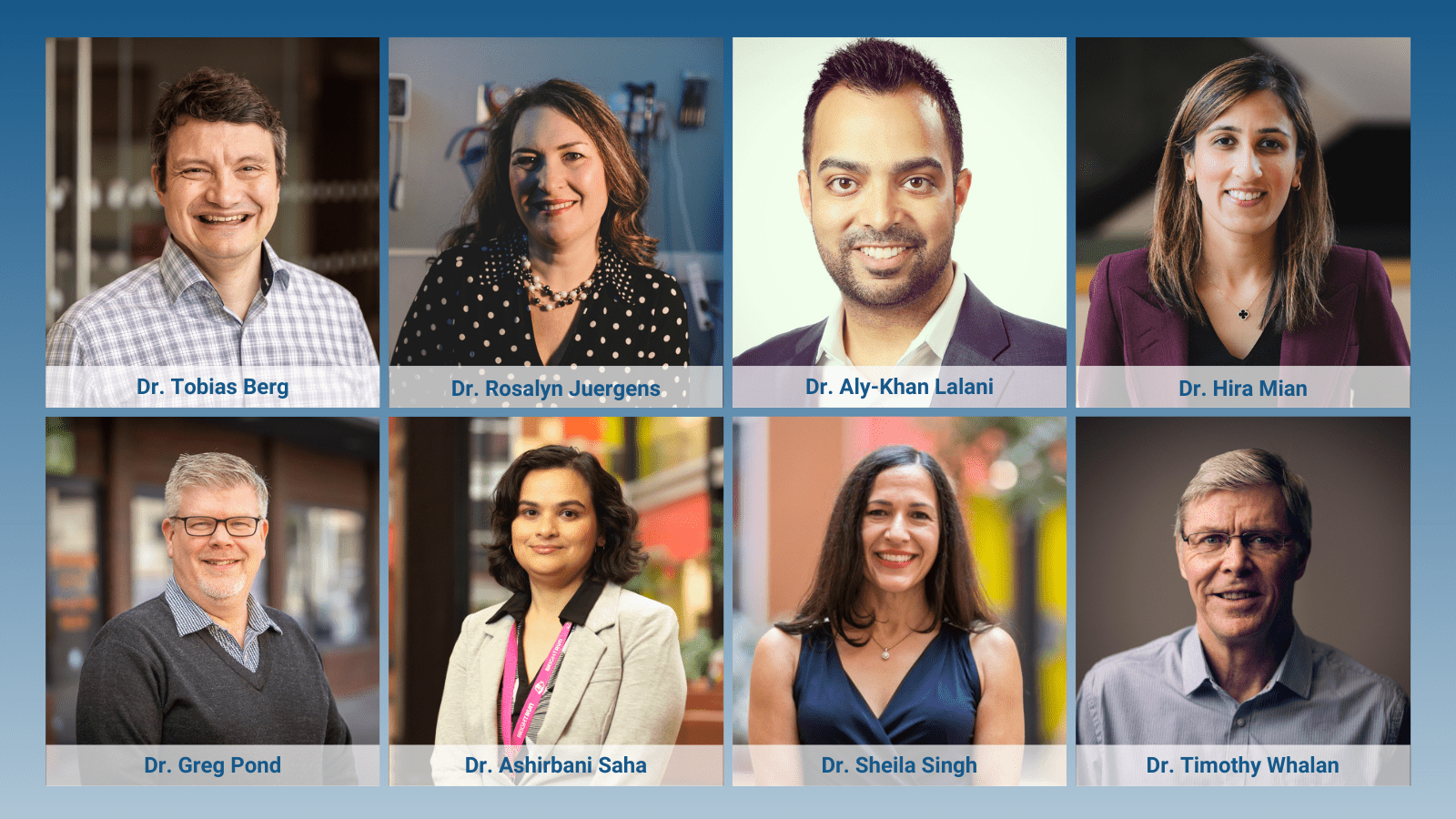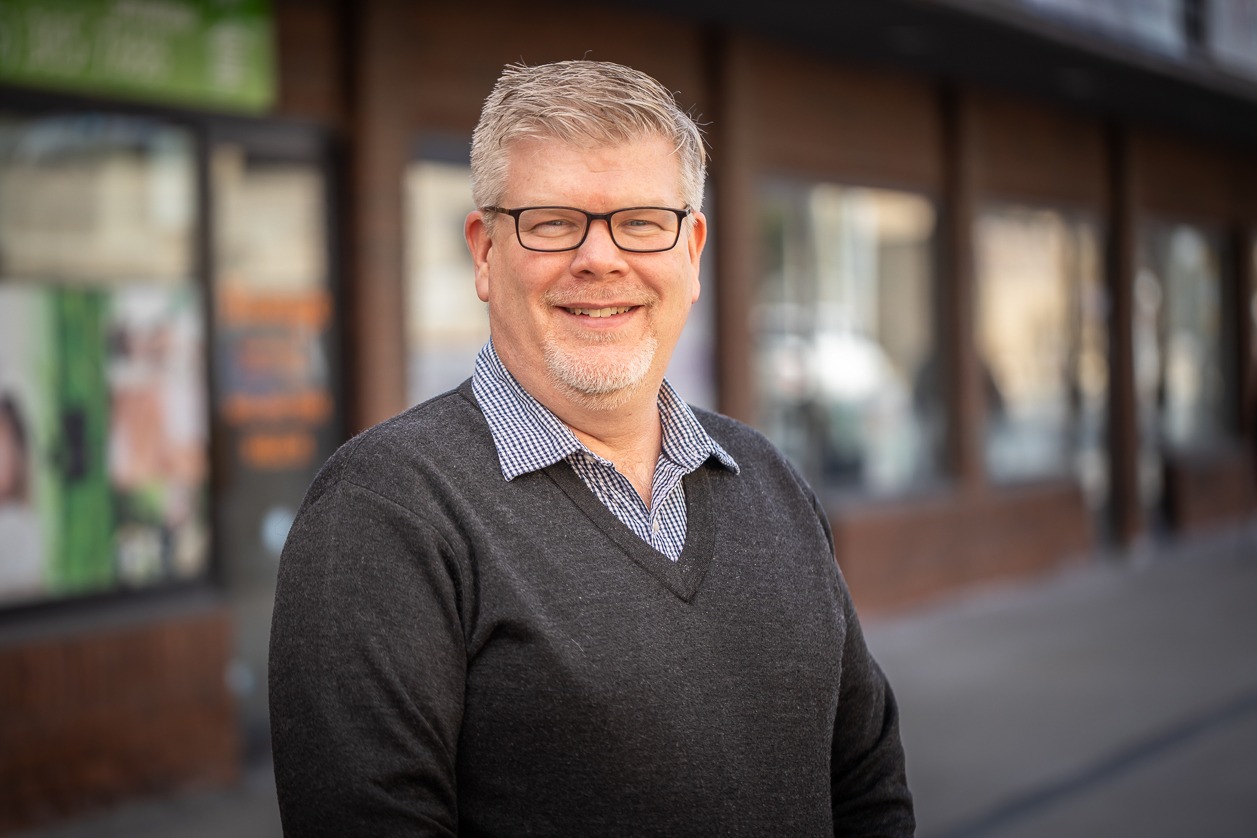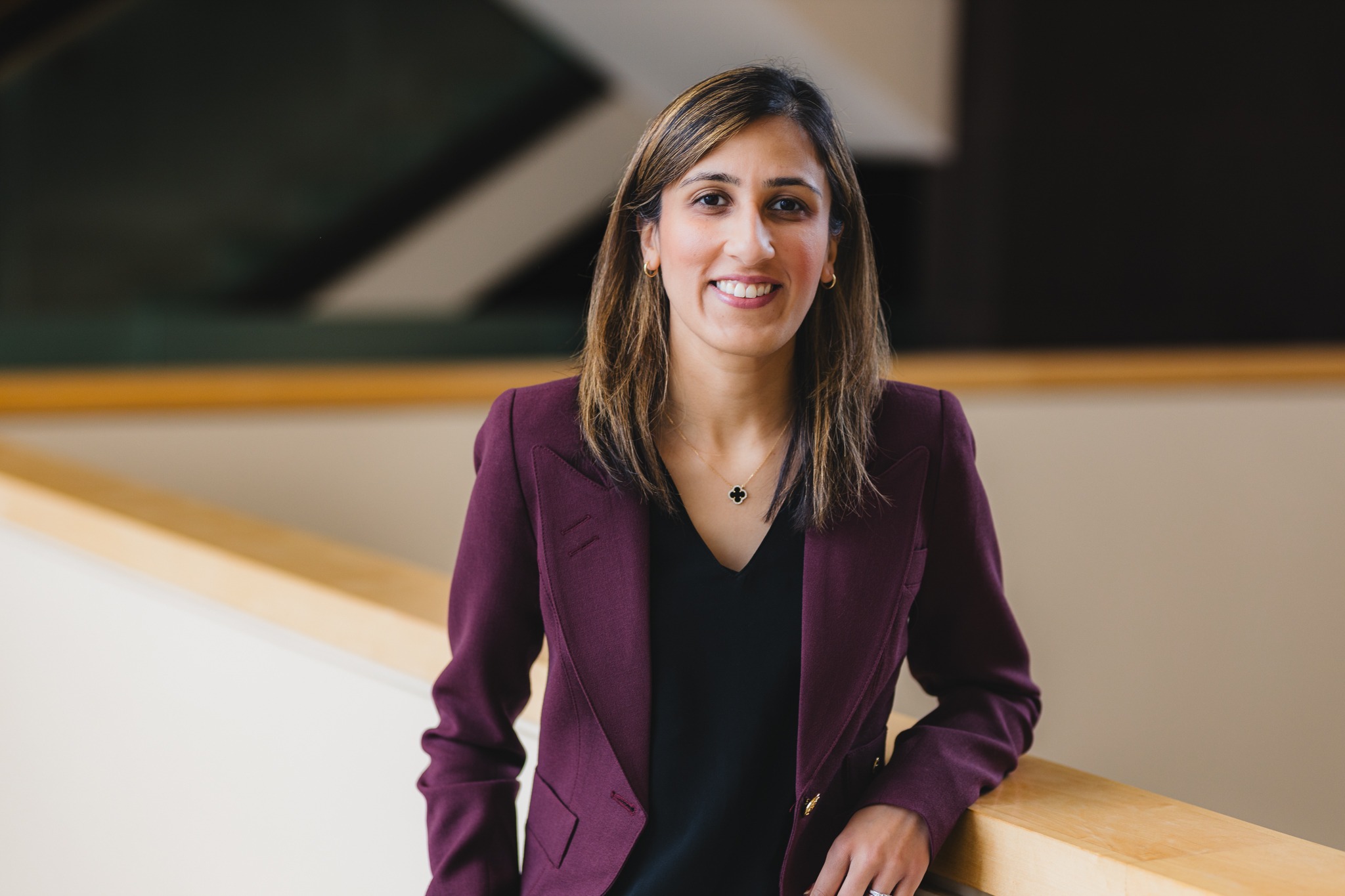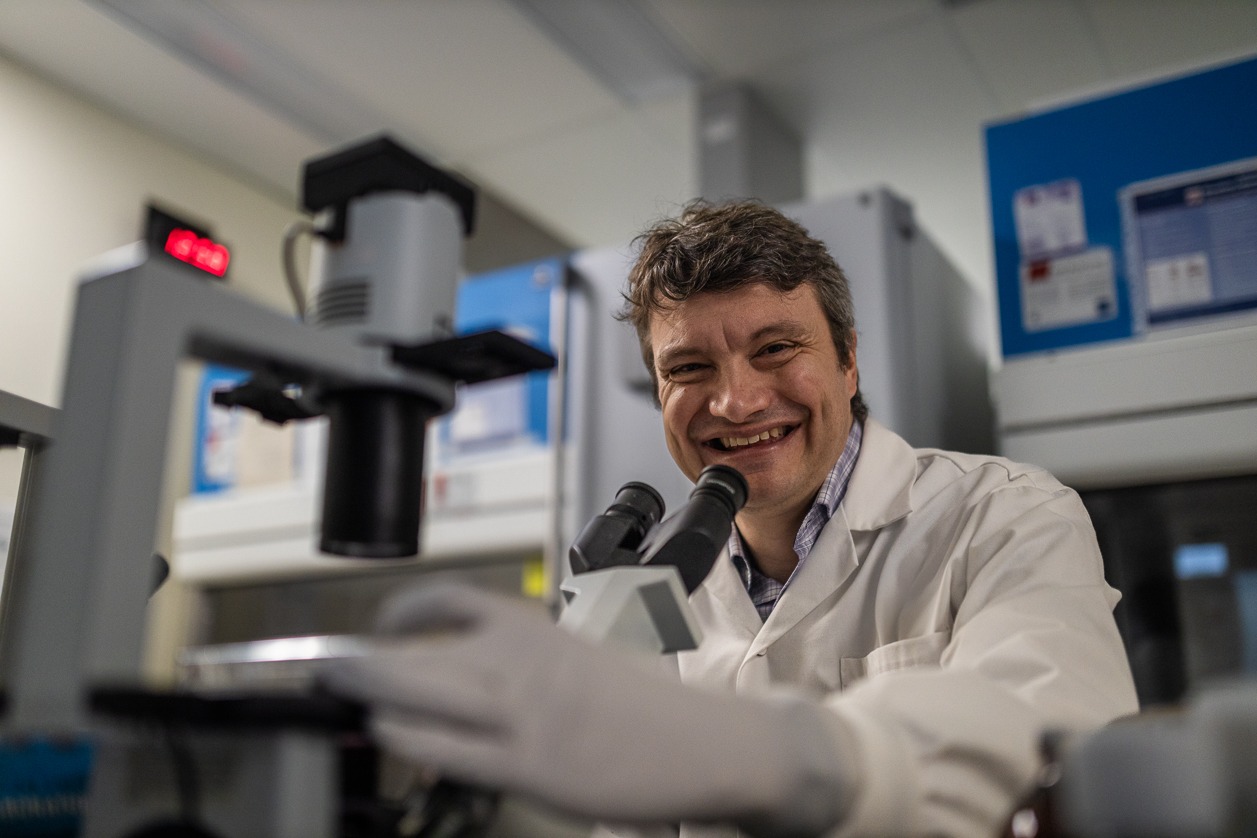
2024 HHS Foundation Gala Research Award winners
The HHS Foundation recognized three junior researchers and three intermediate researchers at the HHS Foundation Gala on March 2.
Congratulations to junior researcher winners Dr. Jenna Dowhaniuk, Dr. Mathew Leonardi and Dr. Amanda Sim; and to our intermediate researcher winners Dr. Rahul Chanclani, Dr. Michael Livingston and Dr. Deborah Sloboda. Winners each receive $25,000 to take their innovative research projects to the next level.
“Their innovative, leading-edge work exemplifies the top-tier talent in our research community,” says Dr. Marc Jeschke, vice president of research and chief scientific officer for HHS.
Dr. Jenna Dowhaniuk:
Dr. Dowhaniuk is leading a project aimed at transforming the tracking and management of pediatric celiac disease. In children celiac disease can lead to malnutrition, growth stunting, gastrointestinal symptoms and various long-term complications.
Dowhaniuk’s research endeavors to create a comprehensive and innovative survey tool, Celiac-Q Kids to collect patient-reported data, offering health care providers insights beyond traditional diagnostic approaches.
By capturing the holistic impact of celiac disease on children, Celiac-Q Kids aims to facilitate the creation of personalized care plans, enhancing symptom management and overall quality of life for pediatric patients.
The project underscores the importance of incorporating patient perspectives in clinical care. Funding from the HHS Foundation’s annual gala will support the development and validation of this survey, aiming to standardize this approach for tracking and treating pediatric celiac disease.
Dr. Mathew Leonardi
Dr. Leonardi is pioneering a transformative approach to diagnosing endometriosis, a condition traditionally confirmed only through invasive surgery. His innovative project seeks to revolutionize this paradigm by utilizing a novel ultrasound technique, which he co-developed, to collect pelvic fluid in individuals suspected of having endometriosis.
In collaboration with chemists, the study will analyze this fluid for specific markers indicative of endometriosis and inflammation. This groundbreaking method could significantly reduce the need for surgical diagnosis, offering a less invasive, potentially more accessible option for patients.
Gala fundraising will help fund a graduate student team member and the necessary equipment to carry out this crucial research to advance our understanding and diagnosis of endometriosis and dramatically improving the quality of care and life for those affected by this challenging condition.
Dr. Amanda Sim
Dr. Sim is at the forefront of addressing the critical mental health needs of newcomer children and families in Canada. Facing “double jeopardy” from social and economic adversities and structural barriers to mental health support, these families experience marked disparities in accessing care.
Sim’s project aims to design a culturally responsive, family-based, and collaborative model of care that addresses barriers to mental health and well-being support for newcomer families in Hamilton. This initiative seeks to integrate the expertise and lived experiences of newcomer families along with that of partners from the settlement, mental health, and local government sectors.
This research promises to reduce inequities in mental health access and outcomes for Canada’s newest members. Sim’s extensive experience in community-engaged research and her role in the Global Parenting Initiative position her uniquely to lead this transformative project, which will be partially funded by this year’s gala.
Dr. Rahul Chanclani
Dr. Chanchlani leads groundbreaking research addressing the underdiagnosis of pediatric hypertension in Canada. High blood pressure (hypertension) is increasingly prevalent in children, yet blood pressure screening is not regularly performed in children at a primary care level. Current routine measurements lack efficacy, leading to overdiagnosis, increased health care burden, and costs. Chanchlani’s ALERT-BP study aims to develop a risk prediction tool for identifying children with high blood pressure, improving screening at the primary care level.
Leveraging data from diverse pediatric cohorts, the research seeks modifiable and non-modifiable factors associated with high blood pressure in early childhood. The study aims to develop and internally validate a risk prediction model, subsequently externally validating it in other cohorts.
The HHS Foundation’s gala funding will support data access and model validation, fostering a transformative shift in pediatric blood pressure screening, ultimately enhancing early detection and intervention for children at risk.
Dr. Michael Livingston
Dr. Livingston spearheads critical research on acute appendicitis, the leading cause of emergency surgery in children. Children with perforated appendicitis remain in hospital post-operatively to receive intravenous antibiotics. However, the most effective antibiotics for recovery have not yet been established.
Livingston’s ALPACA project aims to determine the optimal antibiotics for children with perforated appendicitis through a first of its kind multicenter randomized controlled trial.
Collaborating with Pediatric Emergency Medicine, Pediatric Infectious Disease, and Pharmacy Research Support Services, the study compares two antibiotics in a blinded trial—a groundbreaking approach in pediatric appendicitis research.
Funding for this project will support a research coordinator and research pharmacy, thereby advancing the pilot study towards a larger multicenter trial that will address this crucial knowledge gap and enhance treatment outcomes for children with perforated appendicitis.
Dr. Deborah Sloboda
With a distinguished career marked by significant contributions to the field of early life origins of health and disease, Dr. Sloboda is heading up a research project exploring the changes in the gut microbiome during pregnancy and its potential impacts on maternal and infant health.
Pregnant individuals make significant physiological adaptations during pregnancy and it has been proposed that some of these changes might involve maternal gut bacteria. Sloboda’s research aims to unravel how maternal gut bacteria and their products contribute to physiological adaptations during pregnancy and investigate the continuity of gut bacteria between mothers and their children.
Gala funding will support Sloboda’s research into the changes that occur to the pregnant gut microbiome and how bacterial products could participate in maternal adaptations to pregnancy. Sloboda’s work promises to advance our knowledge and understanding of pregnancy biology, potentially offering new perspectives for managing pregnancy complications such as gestational diabetes and informing postpartum therapies.
Congratulations to all of our award winners and thank you for your life-changing health care research.




